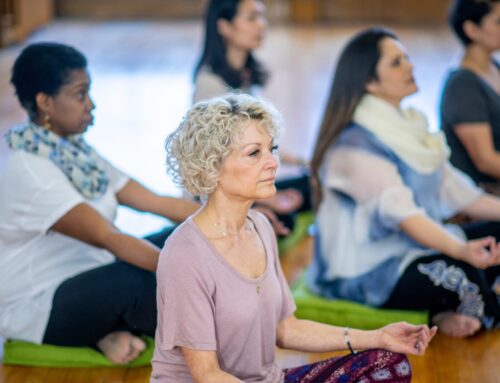In today’s fast-paced world, stress seems to be an ever-present companion. Many individuals are turning towards mindfulness and stress reduction techniques to find peace amid chaos.
With the rise of mental health awareness, practices like meditation, breathing exercises, and mindfulness have gained significant traction. Understanding how these techniques can help transform lives is vital for those aiming to improve their mental well-being.
What is Mindfulness and Why is it Important? 🤔
Mindfulness is the practice of being present and fully engaged in the moment, without judgment or distraction. It encourages individuals to observe their thoughts and feelings objectively.
This practice can significantly reduce stress, as it helps in breaking the cycle of negative thinking patterns that often accompany overwhelming circumstances. By focusing on what is happening right now, we can lessen our worries about the future or regrets about the past, creating a space for profound inner peace.
Techniques for Effective Mindfulness and Stress Reduction 🧘🏻♀️
- Meditation: One of the most effective ways to practice mindfulness is through meditation. Just a few minutes spent focusing on your breath can clear your mind and reduce anxiety levels. Techniques like guided meditation can help individuals deepen their practice and find comfort in their mental refuge.
- Breathing Exercises: Deep breathing techniques, such as diaphragmatic breathing, can immediately calm the mind and body. By taking slow, deep breaths, we trigger our body’s relaxation response, which can alleviate stress and foster a sense of tranquility.
- Mindful Walking: Incorporating mindfulness into daily activities can be transformative. Mindful walking involves paying attention to your surroundings, the sensation of your feet on the ground, and your breath. This technique can help ground you in the present and enhance your appreciation for the simple act of movement.
The Science Behind Mindfulness & Stress Reduction 🔬
Research has indicated robust links between mindfulness and stress reduction. Studies show that mindfulness can lead to lower levels of the stress hormone cortisol, reduced anxiety, and improved emotional regulation. Furthermore, mindfulness practices help train the brain to respond more adaptively to stressors. By practicing mindfulness regularly, individuals can rewire their neurological pathways, setting a foundation for healthier coping mechanisms.
Mindfulness in Everyday Life
Incorporating mindfulness into your daily routine doesn’t have to be daunting. Here are a few easy ways to include mindfulness in your life:
- Set Daily Reminders: Schedule specific times throughout your day to check in with your breath and practice mindfulness. This could be during your morning coffee, between meetings, or before bedtime.
- Limit Multitasking: Focus on one task at a time. Not only will this improve your productivity, but it will also help you engage more fully in whatever you’re doing.
- Gratitude Journaling: At the end of each day, write down a few things you are grateful for. This practice fosters a positive mindset and highlights the positive aspects of your life, further enhancing your mental well-being.
Conclusion: The Path to a Mindful Life
Adopting mindfulness and stress reduction techniques is a powerful step towards improving your mental health. Life may be hectic, but by grounding yourself in the present and practicing mindfulness, you can build resilience against stress. It’s important to remember that, like any skill, mindfulness requires practice and patience.
However, the rewards—stress reduction, improved concentration, and a greater sense of peace—are well worth the effort. Start your journey to a calmer mind today!
📞 Call us at 815-513-5686 to book a massage therapy appointment or you can click 👉🏻 BOOK NOW 👈🏻 You’ll be redirected to our booking calendar and you can pick a session that is right for you! See you soon 💆🏻♀️






Leave A Comment